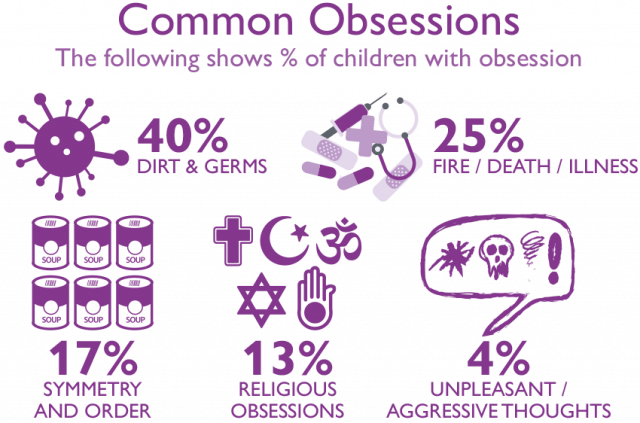When one sees a friend being very particular about having their room spic and span, it’s quite common to hear the offhand comment, “Oh my God, you’re so OCD!”
Or when one thinks of Monica Geller, the mother hen of the F.R.I.E.N.D.S, with her controlling personality and nit-picky neatness, immortalised in her line, “It isn’t just Health Department clean, it’s Monica clean!” it would be easy to assume that she was OCD, too.
Not Just About Cleanliness
However, Obsessive-Compulsive Disorder runs far deeper than a quirky obsession with cleanliness that doesn’t otherwise hinder one’s life. In fact, a need for extreme cleanliness is just one facet of OCD, and doesn’t manifest itself in everyone with the illness.
According to the National Institute of Mental Health, Obsessive-Compulsive Disorder (OCD) is a common, chronic and long-lasting disorder in which a person has uncontrollable, reoccurring thoughts (obsessions) and behaviors (compulsions) that he or she feels the urge to repeat over and over.

The Obsessions
OCD typically manifests itself when one finds themselves developing certain obsessions, such as having taboo thoughts about religion, having aggressive thoughts, being terrified of contamination, and an excessive desire for symmetry.
The Compulsions
These obsessions create extreme anxiety in the patient, and lead to them acting on certain compulsions in order to justify these obsessions, such as repeated hand washing, counting to a certain number or repeating a certain phrase, performing actions a certain number of times, or even checking on the same thing repeatedly.
A Debilitating Illness
These intrusive thoughts and compulsions can cause extreme anxiety and self-loathing in the individual, and could even be debilitating, resulting in them spending a lot of time catering to their compulsions, and losing out on time to perform other, more constructive activities.
Read More: This Lean In India Event Takes A Look At The Neglected Sector Of Women On Career Break
How it Gets Better
OCD is rarely completely cured, but it can be treated to a very large extent with therapy and medication, and can be turned from a voice that dominates one’s thoughts to an annoying little whisper that can be easily ignored.
While it is not always true that people with OCD have extremely high intellect (unless they’re Sheldon Cooper or Nikola Tesla!), it is often noted by psychiatrists that patients with OCD have above average intelligence.

Painfully Aware
The need to constantly find patterns in everything, to always be alert to even minor changes in one’s immediate environment, rigid planning, painstaking attention to detail, and copious amounts of research on anything that could be a cause of worry is usually accommodated by an above-average intellect, as it requires a certain degree of mental agility to spin patterns and be constantly aware of minute details.
Medical Intervention
However, having an above-average intellect does not mean having an above-average ability to rationalise, and even if one is highly intelligent, it is almost impossible to get over OCD simply by trying to “think” or “talk” oneself out of it.
Medical intervention is necessary for cure, and delays in seeking help could make the obsessions stronger, and increase the misery and anxiety of the victim.
Image Credits: Google Images
Sources: National Institute of Mental Health (NIH), Wexford Mental Health Association, Quora
More Recommendations:
The Japanese Suicide Forest Is Scary Yes, But Not A Means To Your Entertainment



































